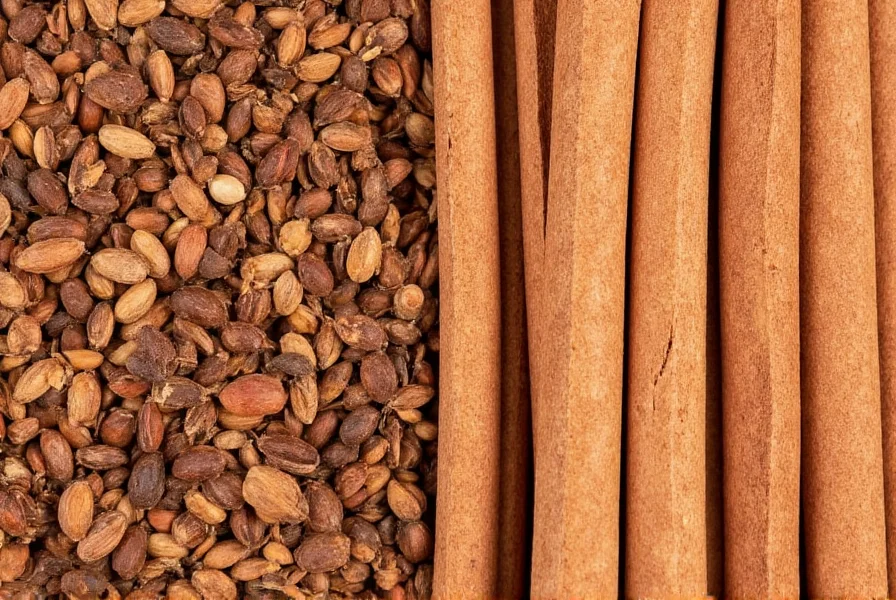
Understanding Cinnamon's Health Potential
For centuries, cinnamon has been valued not just as a spice but for its potential therapeutic properties. Modern research continues to validate many traditional uses while revealing new applications for this aromatic bark. Unlike many wellness trends, cinnamon's benefits are supported by a growing body of clinical evidence, particularly regarding metabolic health.
Ceylon vs. Cassia: Choosing the Right Type
Not all cinnamon provides equal benefits or safety profiles. Understanding the differences between varieties is crucial:
| Characteristic | Ceylon Cinnamon | Cassia Cinnamon |
|---|---|---|
| Also known as | "True" cinnamon | Chinese cinnamon |
| Coumarin content | Very low (safe for regular use) | High (potential liver concerns) |
| Flavor profile | Milder, sweeter | Stronger, more pungent |
| Price | Higher | More affordable |
For regular consumption, Ceylon cinnamon represents the safer choice due to its minimal coumarin content. Those with liver conditions should be particularly cautious with Cassia varieties.
Scientifically Supported Health Benefits
Blood Sugar Regulation
Multiple studies demonstrate cinnamon's potential for improving insulin sensitivity. Research published in the Journal of the Academy of Nutrition and Dietetics found that 1-6 grams daily reduced fasting blood glucose by 18-29% in people with type 2 diabetes. The mechanism appears related to cinnamon's ability to mimic insulin and enhance glucose uptake by cells.
Powerful Antioxidant Properties
Cinnamon ranks among the most antioxidant-rich spices. Its polyphenols combat oxidative stress more effectively than many fruits and vegetables. A comparative analysis in Oxidative Medicine and Cellular Longevity placed cinnamon third among 26 spices for total antioxidant capacity, potentially reducing cellular damage that contributes to chronic disease.
Anti-Inflammatory Effects
The cinnamaldehyde in cinnamon inhibits inflammatory pathways at the cellular level. Clinical trials suggest regular consumption may lower inflammatory markers like TNF-α and IL-6. These effects could explain cinnamon's traditional use for arthritis and other inflammatory conditions, though more human studies are needed.
Cardiovascular Support
Several meta-analyses link cinnamon consumption with improved heart health markers. Doses of 1-3 grams daily have demonstrated modest reductions in LDL cholesterol (up to 27 mg/dL), triglycerides, and systolic blood pressure. These combined effects may contribute to reduced cardiovascular risk over time.
Potential Benefits Needing Further Research
While promising, these potential benefits require more rigorous human trials:
- Neuroprotective effects: Early research suggests cinnamon compounds might inhibit tau protein aggregation associated with Alzheimer's disease
- Antimicrobial properties: Laboratory studies show activity against certain bacteria and fungi, but clinical relevance remains unclear
- Weight management: Some evidence indicates cinnamon may reduce visceral fat, but results are inconsistent across studies
Practical Usage Guidelines
For those seeking cinnamon's health benefits, consider these evidence-based recommendations:
Recommended Dosage
Most clinical trials showing benefits used 0.5-3 grams (approximately ¼ to 1½ teaspoons) daily. Higher doses don't necessarily provide additional benefits and may increase coumarin exposure with Cassia varieties.
Safe Consumption Practices
- Choose Ceylon cinnamon for regular use, especially if consuming more than ½ teaspoon daily
- Limit Cassia cinnamon to occasional use or small amounts (under ½ teaspoon)
- Consult your healthcare provider if taking diabetes medications, as cinnamon may enhance their effects
- Avoid cinnamon supplements if you have liver conditions or take medications metabolized by the liver
Effective Incorporation Methods
Maximize cinnamon's benefits through these practical approaches:
- Add to morning coffee or tea (enhances absorption when combined with black tea)
- Mix with Greek yogurt and berries for a blood sugar-friendly snack
- Use in place of sugar in oatmeal or smoothies
- Combine with honey (in moderation) for soothing sore throats
- Add to savory dishes like curries and stews for depth of flavor
Safety Considerations
While generally safe as a food spice, cinnamon presents some considerations:
- Coumarin content: Cassia contains high levels that may cause liver damage with prolonged high intake
- Medication interactions: May enhance effects of diabetes drugs and blood thinners
- Allergic reactions: Rare but possible, especially with occupational exposure
- Pregnancy: Culinary amounts are safe, but therapeutic doses should be avoided
Conclusion
Cinnamon represents one of the most promising natural compounds with multiple evidence-based health benefits. Its effects on blood sugar regulation, inflammation reduction, and antioxidant protection make it a valuable addition to a health-conscious diet. By selecting the appropriate variety (preferably Ceylon), using it in moderation, and understanding its limitations, individuals can safely incorporate this ancient spice into their wellness routine. As with any natural remedy, cinnamon should complement—not replace—conventional medical care for diagnosed conditions.
Frequently Asked Questions
How much cinnamon should I take daily for health benefits?
Research suggests 0.5-3 grams (approximately ¼ to 1½ teaspoons) of Ceylon cinnamon daily provides measurable health benefits without safety concerns. Higher amounts don't necessarily increase benefits and may pose risks with Cassia varieties due to coumarin content.
Can cinnamon lower blood sugar immediately?
Cinnamon doesn't lower blood sugar immediately like medication. Studies show improvements in fasting glucose levels after 4-12 weeks of regular consumption. It works by improving insulin sensitivity over time rather than providing instant glucose reduction.
Is Ceylon cinnamon worth the higher price?
For regular consumption, yes. Ceylon cinnamon contains significantly less coumarin (a compound that may cause liver issues in high amounts) than Cassia. While Cassia offers similar flavor and some benefits, Ceylon provides a safer option for daily use, especially for those with liver conditions or taking medications.
Can I use cinnamon if I'm on blood pressure medication?
Consult your healthcare provider first. Cinnamon may have mild blood pressure-lowering effects, which could potentially enhance the effects of medication. While culinary amounts are generally safe, therapeutic doses might require medication adjustment under medical supervision.











 浙公网安备
33010002000092号
浙公网安备
33010002000092号 浙B2-20120091-4
浙B2-20120091-4